EDI at the European Institute

Equity, Diversity, and Inclusion (EDI)
The European Institute strives to build an inclusive and supportive community, and supports all staff and students regardless of sex, race, sexual orientation, disability, religion or belief, age or gender reassignment. The Department and its staff work to ensure respectful, inclusive and supporting working relationships, both within the Department and across the School.
Our commitment to EDI is imbedded in the LSE 2030 strategy. LSE wants to enable every member of our community to excel, by investing in every part of our LSE community; by facilitating lasting relationships with our alumni, friends and partners; by ensuring that LSE works for everyone; and by creating a sustainable LSE.
The European Institute’s EDI Committee serves as the main forum for monitoring, promoting, and protecting equality and diversity in the Department. Equality and diversity refers here primarily to matters of gender, ethnicity, sexual orientation, disability, religion, age and gender identity, but also more generally to ensuring respectful working relations across departmental hierarchies.
The purpose of the committee is to:
- Review and monitor department policies and processes with regard to their impact on equality and diversity and, where appropriate, making recommendations for change;
- Promote a working environment where concerns about equality and diversity can be freely raised and discussed, and where all members of the department feel treated as equals;
- Promote a greater awareness of equality and diversity issues;
- Support the department to ensure that teaching and administrative workloads are informed by equity and transparency;
- Encourage departmental diversity through its hiring and recruitment processes, and in its public events programme;
- Assist with the development of inclusive curricula, teaching and research plans, as required;
- Support the department to develop proactive policies that can address unconscious bias;
- Ensure that the department adopts, as appropriate, agile working practices to support its staff.
Ideally, the EI’s EDI committee will have representatives that provide a diverse representation of the department, taking into account gender, race, disability, sexual orientation, age, religion and parental status.
- EDIC Co-Chair: Dr Vesna Popovski
- Department Manager & EDIC Co-Chair: Carl-Ludwig Campbell
- Head of Department: Professor Simon Glendinning
- At least one representative from each of the following groups, recruited yearly:
- Research staff (Band 6 and lower)
- Professional Services Staff (Band 6 and lower)
- Academic Staff (Associate Professorial level or lower)
- Research student(s)
Racism, homophobia/transphobia, sexism, discrimination, bullying and harassment are all unacceptable and will not be tolerated in the European Institute or at LSE.
If you have any concerns, or if you have been personally affected, you can contact the Department's EDI Committee either via its chair, Dr Jennifer Jackon-Preece, or anonymously by leaving a letter in the EI’s Professional Services Office, room CBG 7.13. All messages will be managed confidentially.
You are also welcome to email the Head of Department, Professor Simon Glendinning, or the Department Manager, Carl-Ludwig Campbell, directly.
The School’s EDI Office is also available to support you.
In order to uphold our commitment to advancing equality of respect and opportunity, we will treat all people with (equal) dignity and respect
Resources, trainings, and events

EI Student EDI Team
The Student EDI Team is a new initiative in the EI to help to engage with our students and give them a platform and a voice in our EDI work in the department.
The EDIC has representative members for both our Research Students and MSc Students. By having a Student Team this opens up space for a number of EDI Ambassadors who can engage in various capacities with EDI work and discussions in the department. Contact the EI at ei@lse.ac.uk if you want to find out more about becoming an EDI Ambassador in the EI.

Explore the variety of outputs of the European Institute's Beyond Eurocentrism Programme. This programme hopes to contribute to the European Institute's work related to Education for Sustainability, Inclusive Education, Diversifying and Decolonising, and going beyond Eurocentrism in the European Institute.
Find out more about upcoming Beyond Eurocentrism Events!
Support for students

LSE's Student Wellbeing Service works with you and the wider school to explore and manage challenges relating to disability, and to support your wellbeing.
Their page offers information about support including; the Disability and Mental Health Service, Wellbeing and Counselling Services, One-to-one Support, Peer Supporters, Workshops and Groups, 24/7 Support, Guides for Staying Well at LSE, Emergencies and Crisis Support,and the Student Support Map.
EDI Office

Catch up with the latest news and attend EDI-related events at LSE.
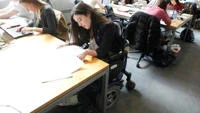
Studying and Researching Diversity at LSE
In order to showcase the range of opportunities to study diversity for LSE students, the EDI team has collated a collection of diversity-related courses on offer at the School.
The EDI team has also collated a list of the School's diversity experts in order to present its world-leading researchers of diversity in one place.
If you would like to suggest other courses or diversity experts at the School for inclusion on the EDI website, please get in touch with the EDI team via edi@lse.ac.uk.
LSE Life

LSE Life is the place to discover and develop skills you'll use as a student and beyond. They're available online and on the Ground Floor of the Library.
Discover their range of events and workshops, and access support in your studies through their one-to-one sessions.
Eden Centre for Education Enhancement

Find out about upcoming events and programmes from the Eden Centre.

Find out more about Education for Sustainability and how to embed change.
Check out the Education for Sustainability events, resources, and the Sustainability Strategic Plan.
Inclusive Education

Inclusive Education is teaching in ways that dismantle the dominant structures within higher education embedded in whiteness, able-bodied, elite and heteronormative culture.
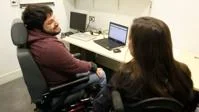
Find information and resources for students in the Academic Mentoring Portal. Academic mentoring is an integral part of education at LSE and critical to building an inclusive scholarly community at the School for everyone. It is also part of the LSE 2030 Strategy, the Inclusive Education Action Plan, and the Student Mental Health and Wellbeing Framework.
LSE Students' Union (LSESU)

Every year students get the chance to elect four sabbatical officers (paid) and seven part-time (paid) officers that champion the needs of students at LSE.
These officers will lead LSESU, campaign for your rights, lobby LSE to make effective change, host a number of events for education or entertainment, and much more!
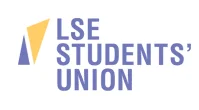
The LSESU has more than 200 societies, with thousands of student members. Find out more about these societies, their focus, and their events and activities here.
EDI Office

Catch up with the latest news and attend EDI-related events at LSE.

Find out more about LSE's Staff Networks and their upcoming events.
LSE's Staff Networks include; LSE EmbRace, the Gender Equality Forum, LSE Power, DAWN, Spectrum, the Parents and Carers Network, and the ECR Network.

The EDI team has collated a list of the School's diversity experts in order to present its world-leading researchers of diversity in one place.
If you would like to suggest other diversity experts at the School for inclusion on the EDI website, please get in touch with the EDI team via edi@lse.ac.uk.
Human Resources

The Staff Wellbeing pages have information and support related to Mental, Physical, Professional, Social, Financial, and Environmental, Wellbeing.
The LSE Staff Wellbeing Mental Wellbeing page has information about support including; LSE's Staff Councelling Team, LSE's Mental Health Staff Champions, the Mental Health First Aid (MHFA) Network, the Wellness Toolkit, and Tips on Managing Stress.
As well as training modules including; Mental Health Awareness Module, Mental Health Skills Training for Managers, Student Mental Health and Wellbeing online staff training, and wellbeing webinars.

Equality and Diversity Online Module
The Organisational Learning team provides a number of online training and resources to aid you in your personal and professional development. The Equality and Diversity online module covers; the main principles of equality and diversity and legislation, how equality and diversity impacts on us all, and outlines the key resources and policies.
Eden Centre for Education Enhancement

Find out about upcoming events and programmes from the Eden Centre.

Resources to support your practice
Explore the Eden Centre's range of resources available to support your practice in a variety of different areas including; curriculum design and enrichment, teaching and learning activities, assessment and feedback, and technology-enhanced learning.
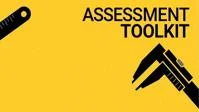
Explore the Eden Centre's Assessment Toolkit, this can be your guide to developing assessment methods that best fit your course and enhance your students' ability to know the causes of things.

Graduate Teaching Assistant Portal
Visit the Eden Centre's Class Teaching Portal to find information and resources intended to support class teachers at the LSE.

Discover the Eden Centre's departmental advisers and the range of support, guidance, and development they can provide.

Find out more about Education for Sustainability and how to embed change.
Check out the Education for Sustainability events, resources, and the Sustainability Strategic Plan.
Inclusive education

Inclusive Education is teaching in ways that dismantle the dominant structures within higher education embedded in whiteness, able-bodied, elite and heteronormative culture.

Find information and resources in the Academic Mentoring Portal. Academic mentoring is an integral part of education at LSE and critical to building an inclusive scholarly community at the School for everyone. It is also part of the LSE 2030 Strategy, the Inclusive Education Action Plan, and the Student Mental Health and Wellbeing Framework.

Explore information and resources from Inclusive Education about articulating an empowering anti-racist praxis for equity and justice in the classroom.

Explore information and resources from Inclusive Education about Curriculum Enhancement, developing a curriculum that 'centres', rather than 'others'. Curriculum enhancement aims to ensure teaching staff can apply the work and research from across the IEAP to improve inclusivity of their practice.

Explore information and resources from Inclusive Education about Inclusive Pedagogy. This page also offers resources and guidance on Digital Accessibility.
Support across LSE

Age Equity

More information from LSE's EDI office on policies and support available related to age.

Find out more information from LSE about their support for mature students.

Disability and Wellbeing
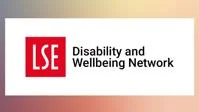
DAWN, the Disability and Wellbeing Network, is a new network at LSE. The aim of the network is to make LSE more disability confident and raise awareness about disability on the campus. Click on the link above to learn more about the network.
If you wish to be a part of this network, express your interest at dawn@lse.ac.uk.

Disability and Wellbeing Service
You can find extensive information about LSE services on the Disability and Wellbeing Service website.
Students have access to a number of disability and wellbeing services including; free and confidential counselling, a mental health advisor, and the Peer Support Scheme.

LSE Mental Health Staff Champions
Mental Health Staff Champions are colleagues who take action in the workplace to change the way we all think and act about mental health.
Our Mental Health Champions have also produced a Mental Health Champions Cookbook to nourish your body, mind and soul!

More information from LSE's EDI office on policies and support available related to disability and mental health.

LSE is committed to complying with the disability provision of the Equality Act 2010. LSE's Policy on Disability details how the school aims to implement the requirements of the legislation.

LSE's partnership with AccessAble
LSE has a partnership with AccessAble to provide fine-grain, pan-disability access guides to the School’s buildings (including the residences), good practice guides that will inform ongoing estates developments, route maps between buildings, and an Apple/Android app. The guides and maps are available from the AccessAble website.
The good practice guides, which AccessAble will produce as part of this work, will support us in being proactive, at a time when the LSE estate is undergoing major physical change.

Business Disability Forum (BDF)
LSE is a member of the Business Disability Forum. BDF is a not-for-profit organisation that works with businesses to support employees with disabilities. They provide training, expertise and resources for managers and staff about disability. This is an important issue for LSE as 19% of working age adults have a disability, and 96% of disabilities are not visible.
There is a huge list of benefits of membership available to all LSE staff. All colleagues can register with their LSE email address to access line manager guides, a mental health module and specialised toolkits. There is also an advice service for managers and resources on recruitment, adjustments and communications.
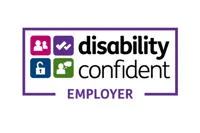
LSE is a Disability Confident Employer (level 2)
LSE is part of the Disability Confident scheme, which is designed to support employers to recruit, recognise and retain the skills and talents of disabled people and people with health conditions. You can find out more about the Disability Confident campaign on the Government's website, and you can also review the guidance for employers on the Department for Work and Pensions site.
LSE is a Disability Confident Employer (Level 2) and is committed to interview any applicant with a disability who meets the essential criteria for a job vacancy. Please indicate on the form whether you would like to be considered for a guaranteed interview under the Disability Confident Scheme.

Time to Change
LSE is committed to challenging mental health stigma and is a signatory to the Time to Change pledge.

IT accessibility at LSE
Data and Technology Service (DTS) is committed to the provision of facilities and support for disabled students and staff to ensure equality of access to services.
Additional facilities and services for Library users with disabilities: The Library is committed to ensuring that it provides full access to the range of services and facilities that it offers to both LSE staff and students and non-LSE members.

Training
The Cause for Concern Protocol offers guidance to staff in managing student difficulties, including in relation to mental health and wellbeing. For details of training sessions, including flying start induction and Mental Health First Aid course, please contact hr.learning@lse.ac.uk.

Gender
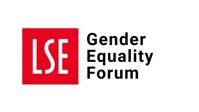
A network of academic women across LSE committed to addressing gender inequality in pay, access and culture.
Contact: genderequalityforum@lse.ac.uk
Contact Co-Chairs: Suki Ali , Ellie Knott and Katherine Millar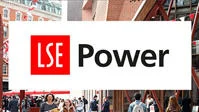
LSE Power – Professional Women for Equality and Respect
The LSE Power network was created in early 2015. The network aims to engage with professional services staff of all gender groups within LSE to encourage and champion behaviour change and development of School policy towards gender equality.

More information from LSE's EDI office on policies and support available related to sex.

More information from LSE's EDI office on policies and support available related to trans and gender identity.
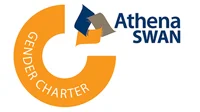
Athena SWAN - Advancing gender equality in higher education.
LSE received a Bronze award from charter Athena SWAN in April 2020, in recognition of our commitment to gender equality. The charter mark is given to institutions advancing gender equality in higher education, through representation, progression and success for all. It shows LSE has a solid foundation and strong evidence-based plans in place to eliminate gender bias and develop an inclusive culture.
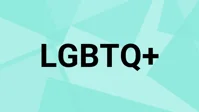
LGBTQ+ Equity

Spectrum is the LSE network for LGBT+ staff at LSE. Spectrum represents staff from lesbian, gay, bisexual, transgender and other minority sexual orientation and gender identities. Spectrum holds open meetings on the second Thursday of each month. There is an agenda but it's also an informal space to get together and chat. All are welcome to attend.
Contact: spectrum@lse.ac.uk

The LSESU LGBT+ Alliance is the LGBT+ society of LSE’s Students' Union. They provide welfare and advice for LGBT+ students, and also organise social events, talks and debates, civil rights campaigns and other LGBT+ related events on campus and around London.
LSESU have created a guide for LGBTQ+ students at LSE.

LGBT+ Role Models and Allies Directory
In common with many other higher education providers, LSE has a directory of LGBT+ role models and allies.
This is designed to support people to feel confident being themselves while working and studying. Role models are LGBT+ members of staff at LSE (academics and PSS (professional services staff). Allies are people who do not identify as LGBT+ but who are willing to take a stand for promoting and supporting LGBT+ equality. Both the role models and the allies are available to support and speak with members of the LSE community.

More information from LSE's EDI office on policies and support available related to sexual orientation.

More information from LSE's EDI office on policies and support available related to trans and gender identity.

Find out how LSE is supporting school-wide LGBTQ+ inclusion.

Parents and Carers

The Parents and Carers Network is for parents (which includes anyone who is caring for a child, be it their own, adopted, or fostered) and carers to meet and exchange experiences, tips, and to socialise.
Find out more about their Mission Statement and Campaigns.
Contact: parents.and.carers.network@lse.ac.uk

Parents and Carers Network Mentoring Scheme
The Parents and Carers Network have set up a small peer-to-peer mentoring scheme which is open to all our members. Find out more information about this scheme here.
If you would like to be mentored, or you would like to become a mentor, please email parents.and.carers.network@lse.ac.uk. We would especially welcome offers from people who would like to mentor carers, or can offer to share their personal experiences on topics not mentioned above.

Pregnancy, Maternity and Parenting
More information from LSE's EDI office on policies and support available related to pregnancy, maternity and parenting.
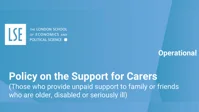
LSE Policy on the Support for Carers
More information about LSE's policy on the support for carers (those who provide unpaid support to family or friends who are older, disabled or seriously ill).

LSE Toolkit for Parents and Carers
Visit this page for more information about LSE resources to support working parents and carers.
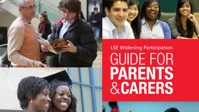
LSE Guide for Parents & Carers .
This guide has been put together by the LSE Widening Participation Team to answer some of the commonly asked questions parents and carers have about applying to and studying at LSE. If you have any further questions, please contact widening.participation@lse.ac.uk

Information for students
Find out more information about support and resources available at LSE for students with caring responsibilities.

Find out more information about LSE's partnerships with three local nurseries to support LSE families for quality childcare options close to campus.

LSE is committed to actively promoting a family friendly culture in the workplace. In support of this, LSE have set out the variety of family friendly resources available to you as a member of LSE staff.
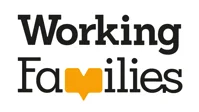
The LSE has a membership with Working Families, the UK's work-life balance charity. Working Families performs a number of roles including providing free legal advice to parents and carers, providing tools to employers to enable them to better support staff, and advocating on behalf of UK parents.

LSE has a membership with Employers for Carers, an employers' membership forum with over 200 membership organisations across the public, private and voluntary sectors. Through its membership, the School is developing additional guidance and other resources for staff and managers.

Race Equity

EMBRACE (Ethnic Minorities Broadening Racial Awareness and Cultural Exchange): EMBRACE is the School's black and minority ethnic (BME) staff network.
Contact: embrace@lse.ac.uk
Web: EMBRACE
Twitter: @lseembrace
Instagram: @lseembrace
The BME Mentoring Scheme (BMEMS) provides a structured programme of mentorship through which BME students at LSE can receive support and advice for their personal, academic, and professional development. The programme involves matching students with LSE alumni based on a series of characteristics and preferences. These matched mentors and mentees then meet regularly from December through to July with support from LSESU staff, including training, events, and networking sessions.
The scheme aims to create a community of BME students and LSE alumni that can draw upon each other for support and knowledge throughout their degree and beyond.

More information from LSE's EDI office on policies and support available related to race.

More information about LSE's approach to advance race equity.

Religion and Belief
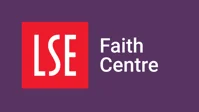
The Faith Centre is home to the LSE's diverse religious activities, transformational interfaith leadership programmes and a quiet, reflective space for all staff and students.
Find out more about the Faith Centre here, and read their Vision Document.

More information from LSE's EDI office on policies and support available related to religion and belief.
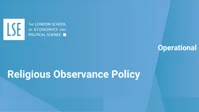
LSE Religious Observance Policy
The School's Religious Observance Policy provides details on the key considerations at play when considering how to avoid disadvantaging members of the School who follow particular religious practices.

The Religion and Belief Guide is the comprehensive resource for religious observance and practice at LSE.
It provides practical information for adherents of particular religions as well as general information for all of us about the religions and belief systems practised on our campus.

Socio-economic background and social mobility

LSE Access and Participation Plan
Find out more about LSE's Access and Participation Plan. This sets out how LSE will improve equality of opportunity for underrepresented groups to access, succeed in and progress from higher education.

The Financial Support Office is responsible for administering School funds and a variety of scholarships, studentships, prizes, and awards. Visit their pages to access their drop-in sessions or find out more.

LSE's pre-entry outreach programme provides free activities for students in London helping them progress to higher education.
Visit there pages to find out more.